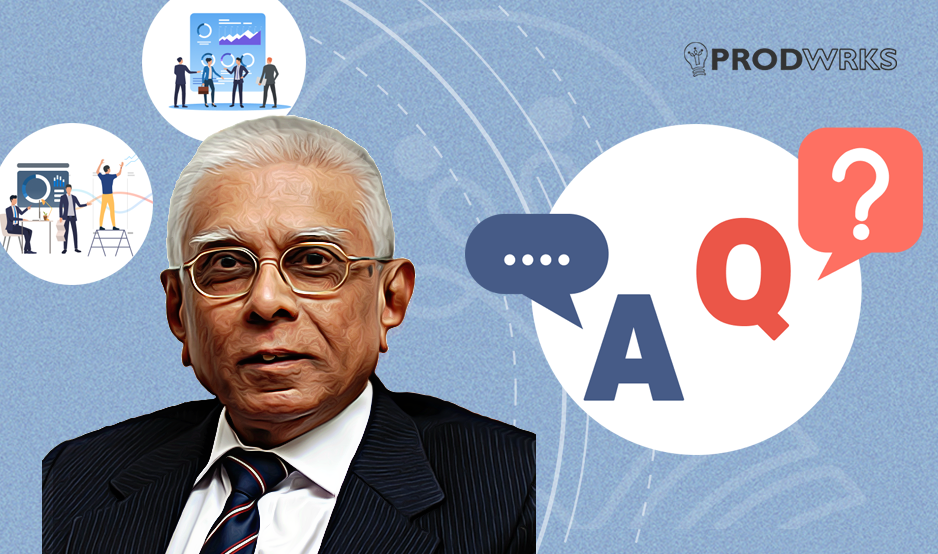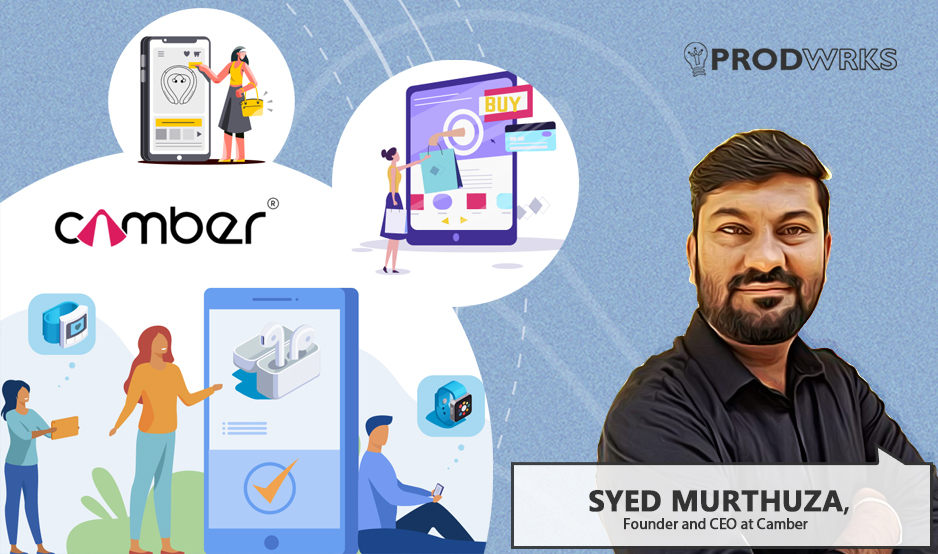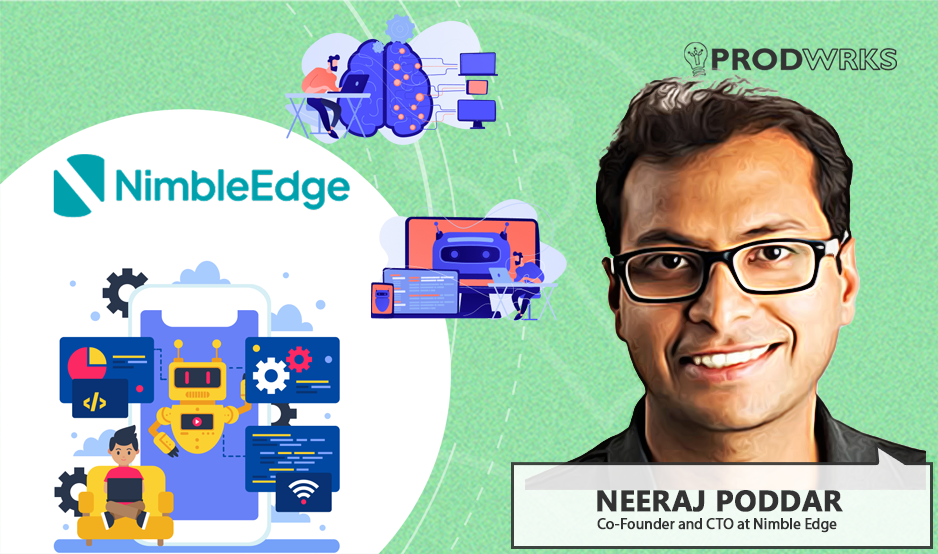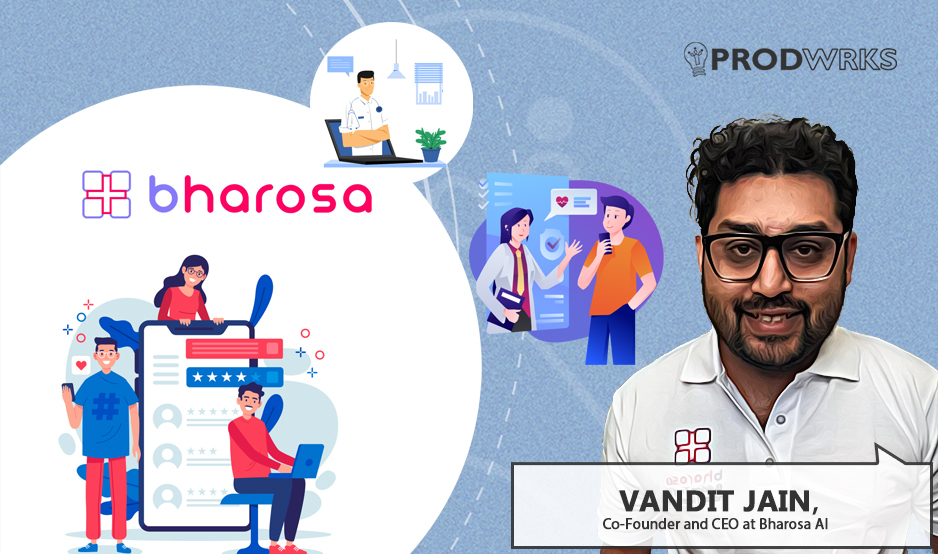
At 92, Hemen Parekh calls himself a “young man with the fire still burning.” His journey—spanning mechanical engineering in the 1950s, pioneering India’s executive search industry in the 1990s, and now building a multilingual AI avatar—offers a rare perspective for today’s product communities, startups, and founders.
In this exclusive interview, Parekh reflects on the turning points that shaped his career, his philosophy on resilience, and his vision for the future of AI.
You often describe your journey as “satisfying” rather than “successful.” Looking back from your early days at Larsen & Toubro to creating 3P Consultants, what would you say were the turning points that shaped your vision as both a corporate leader and later as a tech-driven entrepreneur?
Hemen Parekh: Looking back at my 30-year journey at Larsen & Toubro and later with 3P Consultants, I would say the term “satisfying” better captures the essence than “successful.”
At L&T, the biggest turning point was realizing that human capital was the true differentiator in corporate success. This insight shaped my leadership style—I focused on developing people rather than merely managing them.
In 1990, I took the entrepreneurial plunge with my son, Nirmit, to establish 3P Consultants. We were among the early pioneers in India’s retained executive search space. Our vision wasn’t just to build a business, but to set new standards of knowledge, integrity, and performance in the industry.
Another defining moment was realizing how technology would revolutionize business. We implemented uniform processes and leveraged digital tools early on. This allowed us to scale while keeping ethics and transparency intact.
What satisfies me most is not just profitability, but the fact that we shaped an industry, influenced how executive search is conducted in India, and upheld our values throughout.
From a mechanical engineer in the 1950s to a digital evangelist in the 1990s and beyond, what inner drive kept you ahead of technological shifts for more than six decades?
Hemen Parekh: It has always been curiosity. From the 1950s, I kept myself updated through technical journals. But the key question I constantly asked was: “Where can this technology solve today’s problems?”
When PCs arrived, I embraced them immediately—buying my first one in 1995. By 1997, at age 64, I launched 3pJobs.com, months before Google.
I never saw technology as just gadgets. Each innovation, for me, was a tool for impact. My philosophy has always been: “If you don’t obsolete yourself, someone else will.” That’s kept me forward-looking for six decades.
At 91, you call yourself a “young man.” What personal philosophy has helped you stay resilient and adaptive through so many waves of disruption?
Hemen Parekh: The fire keeps burning because I treat every disruption as an opportunity to learn. My personal philosophies are simple:
- Stay perpetually curious.
- Embrace, not resist, technological change.
- Upskill and reskill continuously.
- Share knowledge and mentor others.
I also draw inspiration from leaders like Konosuke Matsushita, who was active even at 92. Age is just a number—the moment you stop learning is when you truly become old.
In 1997, you launched 3pJobs, years before online job portals became mainstream. What convinced you that India was ready for digital recruitment?
Hemen Parekh: Traditional recruitment had become inefficient, and I saw the internet as the future. India desperately needed a faster, scalable, and more transparent platform. Even though internet penetration was minimal, the need for efficiency and accessibility was obvious.
How did you validate your early platforms when internet penetration in India was so low? What resistance did you face?
Hemen Parekh: Validation was tough. We partnered with cyber cafés to create “job search centers” for candidates.
Employers were skeptical about digital hiring; job seekers worried about authenticity. To overcome this, we:
- Trained HR professionals
- Offered offline help desks
- Localized interfaces in regional languages
- Verified postings strictly
- Partnered with trusted companies
The breakthrough came when corporations reported faster, cheaper hiring. That ripple effect built credibility.
When you introduced products like Resume Rater or Online Jobs Fair, how did you engage and retain early adopters?
Hemen Parekh: We followed a “techie-first” strategy—offering tools like Resume Rater free on global download sites. Over 15,000 recruiters used it, creating organic adoption.
For engagement, we built features like interactive dashboards, interview prep tools, resume targeting, and alerts. Importantly, we created feedback loops so users could shape the product. That sense of ownership made them stay.
Many companies today struggle with balancing legacy systems and digital transformation. Do you see parallels with your 1990s journey?
Hemen Parekh: Absolutely. In the 1990s, we had to balance dial-up intranet recruitment systems with a new web portal. Companies today face the same—keeping legacy systems running while adopting AI and cloud.
The challenge hasn’t changed: ensuring continuity while transforming. What has changed is the pace—today’s leaders must move far faster than we did in the 1990s.
Your AI avatar now answers in 26 languages. Do you believe the future lies in personalized, human-identity-driven AI?
Hemen Parekh: Yes. The future is hybrid—large models for scale, personal models for context.
We need AI systems that capture human expertise while maintaining nuance. My avatar is one such attempt—combining my lifetime of writings with multilingual accessibility.
The challenge will be privacy, ownership, and ethics. But the future belongs to AI that is personalized, contextual, and human-first.
Finally, what advice would you give young founders struggling with product-market fit?
Hemen Parekh: Three things:
- Validate constantly. Talk to users, test assumptions, and pivot when needed.
- Celebrate small wins. Momentum builds through first customers, testimonials, and case studies.
- Find mentors. They provide perspective and keep you resilient during setbacks.
Entrepreneurship is a marathon. Failures are lessons—not definitions. Stay persistent, stay positive, and keep learning.
Closing Note
Hemen Parekh’s story is more than an extraordinary career—it is a philosophy of curiosity, resilience, and ethical innovation. For startups and product owners, his life underscores a timeless truth: technology changes, but the mindset to adapt, learn, and impact society is what builds lasting legacies.
At 92, Parekh remains not just a witness to six decades of disruption, but an active builder of the future.



